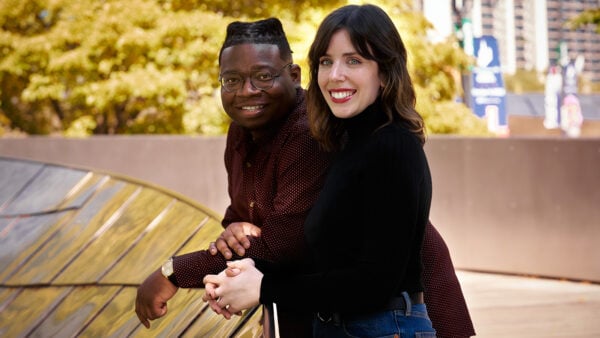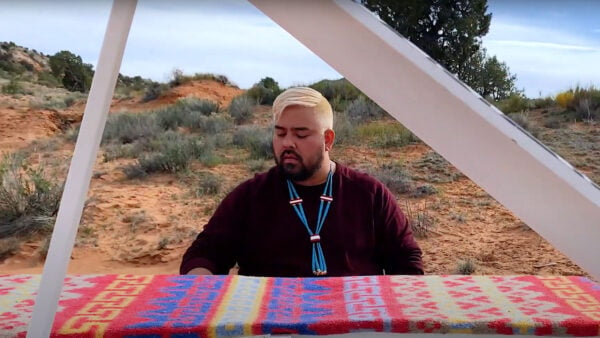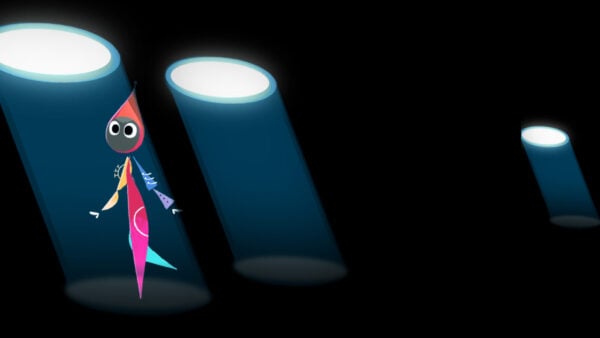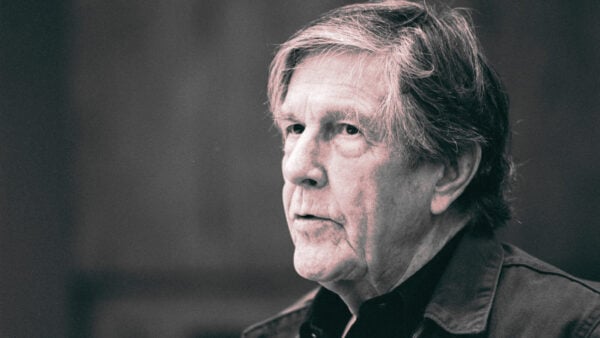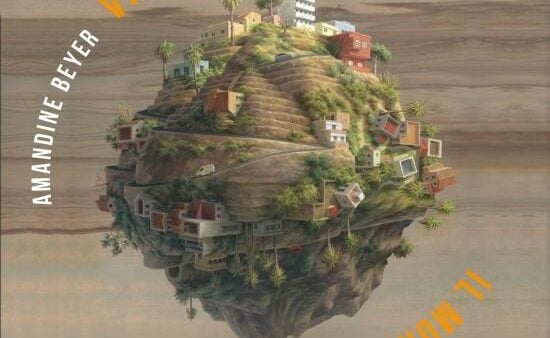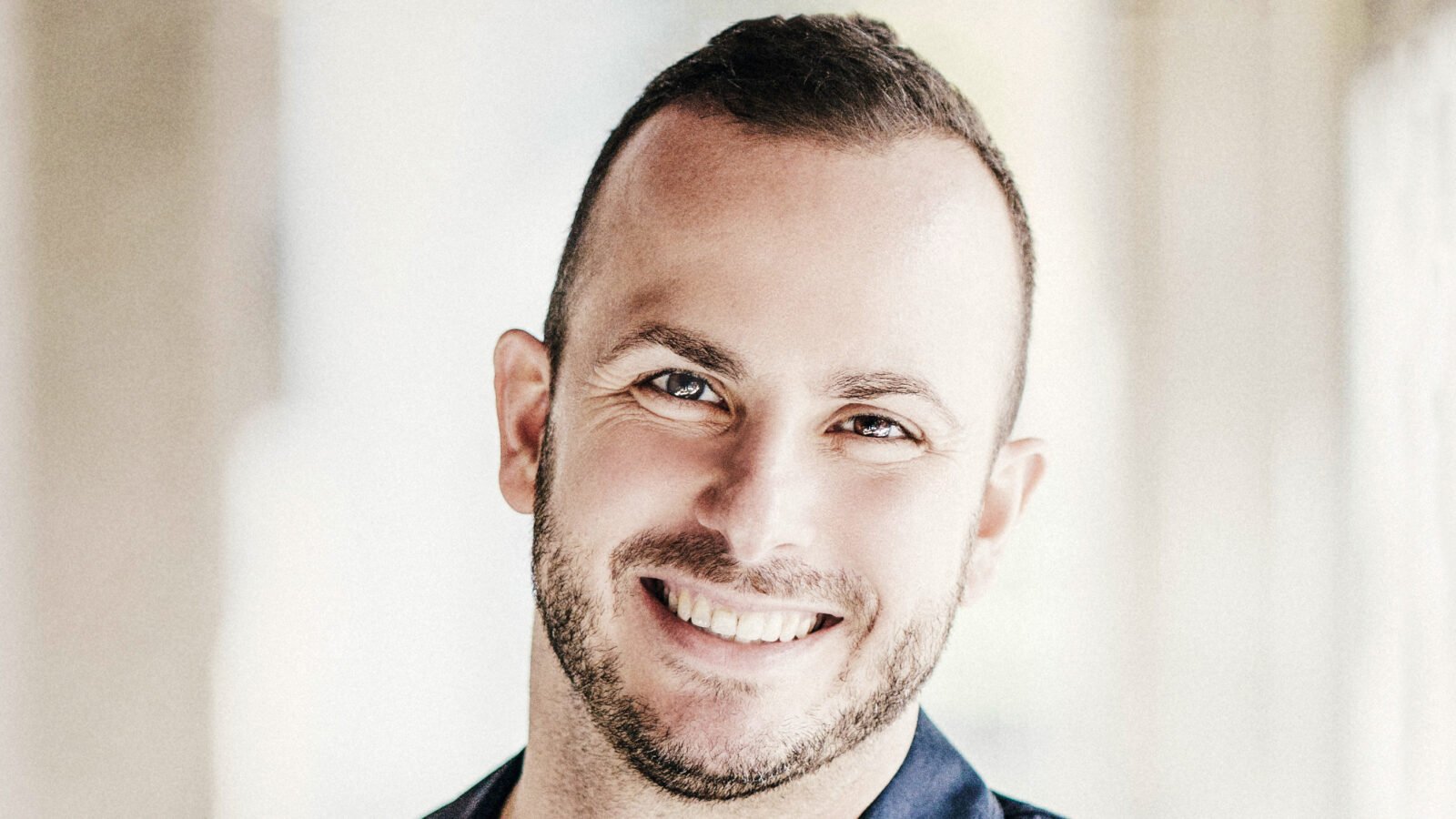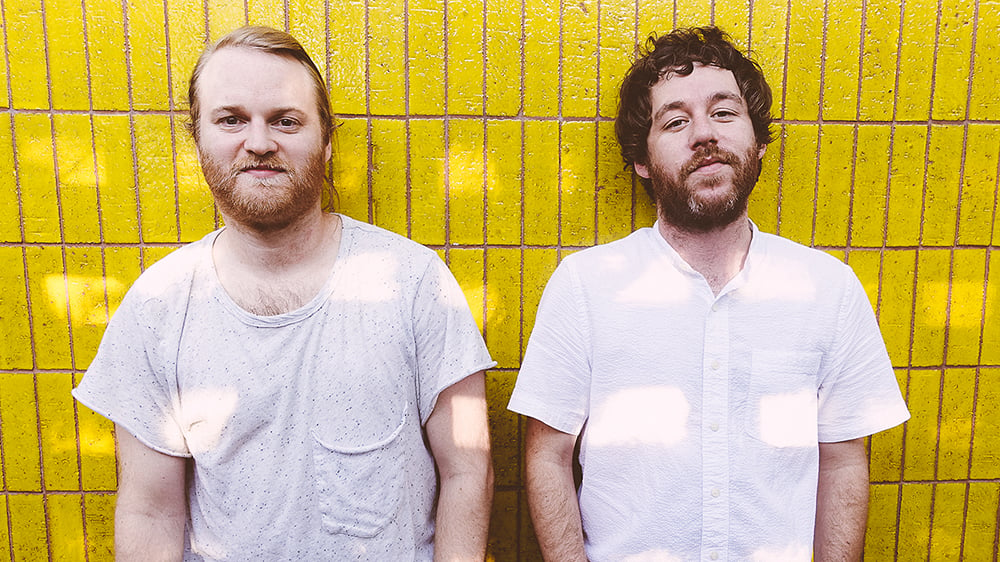
Kyle Dixon and Michael Stein (Photo: Jackie Lee Young)
At its heart, the Netflix hit Stranger Things is really about friendship. Set in fictional Hawkins, Indiana during the 1980s, the series follows a group of young friends who takes matters into their own hands when one of their own goes missing – even if that means taking on a mysterious government lab and gargantuan monsters.
The friendship plot line also translates off-screen: Matt and Ross Duffer, commonly referred to as “The Duffer Brothers,” created the show. The siblings eventually discovered Kyle Dixon and Michael Stein, two Texas-born friends and the eventual Emmy Award-winning composers of the series.
The Stranger Things score has enjoyed incredible success. Dixon and Stein have even performed their music in venues around the world. The duo presented their captivating, electronic score in Chicago at the Athenaeum Theatre on Friday, March 30, 2018.
Get to know Dixon and Stein in the interview below, which tells the story of how their interest in experimental music prepared them to score one of the definitive shows of our era.
Q: How did you both get involved with music?
KD: We grew up listening and sharing a lot of music before we started making it. We’ve known each other since high school, and a lot of that sharing was experimental music. It wasn’t as crazy as some far out stuff, but we were listening to weird electronic music that not a lot of our high school peers were into. I think we both started getting into music by doing experiments with sound, more so than musicianship. We each kind of played instruments…Michael more so than me. But really what we gravitated toward was the experimental side.
MS: I remember walking through old business parks, and we would have field recorders. We passed by a really loud air conditioning unit once, and we thought, ‘Oh that’s cool, we should record it.’ And that’s where we started, to put some perspective on what we heard as music. We would use anything that had a beat or harmonic.
KD: Fundamentally, that’s where we come from: messing around with sound until something interests us. Or even if it doesn’t, it’s just fun to do that. We have plenty of recordings of that kind of stuff [laughs].
Q: From that experimentation, how long was it before you started playing music together?
KD: I was in college and Michael was in Dallas, and we didn’t know we were both interested in making music until we met up during a holiday. ‘Oh, you’re doing music? Me too! This is what I’ve been doing – let’s try and do something together.’ In that period before collaborating, I was learning to play banjo, of all things [laughs]. And then we came together and made some [music]. I started to get more interested, and then we kept in contact over the course of a few years. We got together and made a song that ended up being the first of our band, S U R V I V E. Outside of experimenting with sound, a lot of our musical influences came from stuff like Warp Records, Reflex Records, and Thrill Jockey, which is a Chicago label.
Q: How long was it from starting S U R V I V E until the Duffer Brothers contacted you both about scoring Stranger Things?
KD: The band had been around for about six years, and we put out a few albums. I’m not totally sure how they found our music, but they used one of our tracks in the reel when they were pitching the show. When it came time to look for composers, they weren’t sure who to use. They had an ‘ah-ha’ moment: ‘Let’s ask the guys whose song is in our trailer.’ They emailed us and started the conversation. The rest is history.
Q: From what I’ve learned, it seems like you guys were involved pretty early in production.
KD: In a way, yes. We were working on demos from character descriptions and very loose plots to set a tone. This was before we really had the green light that we were on the project – it was still a pitch phase. Once they did their auditions, they had our demos and played them over the audition tapes, and they liked what we had done. Then we were able to get the go-ahead from the executives. We got a lot of disparate clips that really didn’t make a lot of sense at the time, but at least we got to see the characters and at least glean some information.
Q: That already sounds like a challenge, but were there any other challenges or surprises you both found in scoring for the screen?
MS: Trying how to figure out how to approach a certain scene was a challenge. The second scene in the first season is about three minutes of music, which is actually pretty long for a score. We tried a bunch of ideas before we got it. It’s the scene where you establish the family and kids, and the kids are in the basement playing Dungeons and Dragons. The track was eventually called “Kids,” and it’s quite happy. It’s one of the most important moments in the show and that wasn’t going to be one of the first things we tried as newbs [laughs].
Episode six had a big action close out, and we had to figure out how to do that without using the generic action drum sound. That was a good exercise, because in season two, we really had to figure out how to get around that generic action sound, since there was so much of it.
Q: The action is certainly amplified in season two. Did you find that you had to balance this action music with the more intimate friends and family scenes?
KD: It was a challenge to figure out how to handle those scenes. After composing a lot of this loud music, we had stretches of days where we’d find ourselves saying things like, ‘I wish we could just play some music!’
MS: It was atonal, and we were almost just making noise – we hadn’t played a single note on an instrument for like four days! It was loud and abrasive sounds. It’s way more abrasive until you whittle it down into a presentable mix.
KD: Right – it sounds really intense. We would leave the studio just exhausted because we were surrounded by this crazy noise all day. We would say, ‘Can we play a little melody and play something cute?’
Q: You certainly had freedom in shaping the sound of the series. Did you find that working on a Netflix production allows for more creativity, perhaps more than another network?
MS: I think so, if you have the right team and the right people pushing you. The directors are open-minded, and everyone on the team was cool and interested in hearing stuff. They would get behind us and say, ‘No, we’re not interested in changing that – we love it!’ I can imagine that if you’re working with someone that you’re not on that base level with, you might have some more trouble. They seemed to really trust their people.
KD: Netflix is a little like HBO, in that they’re willing to take more risks and take on subjects that probably would not make it on network television. At their essence, Netflix is a tech company that hired a bunch of production teams and people who have been in show business. But they have this start-up ethos where they’re just willing to try stuff out. It’s really about the team you’re working with directly, and Netflix fosters a good situation.
Q: The score has really become iconic, and you have now performed it around the world. What was it like performing this music in front of a live audience for the first time?
KD: The first time we did it was in Krakow, Poland, and I didn’t know what to expect. It’s a bit different than what we’ve done with our band in the past, and we were nervous about how people would take it.
MS: It may have been the biggest room we’ve played to date!
KD: It was nerve wracking! After the show, a lot of people came up to us and told us how much they enjoyed it.
Q: Besides Stranger Things, what are some other projects that we can expect from you guys in the future?
KD: Right now, we are working on a VR [virtual reality] series called Spheres, directed by Eliza McNitt. The first episode we did was about black holes – it’s weird! And we’re also working on the next S U R V I V E album. There’s other stuff on the horizon, and we’ll be busy!

